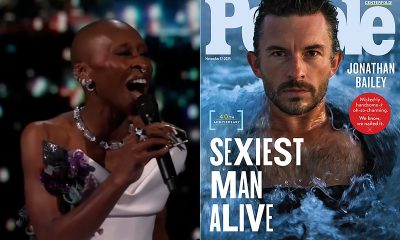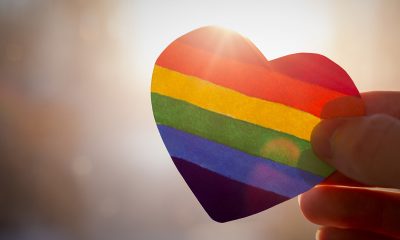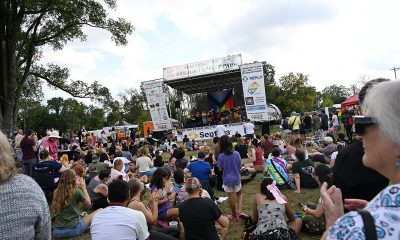a&e features
From Gaga hit maker to drag star
Gay producer left the pop world behind to discover his inner woman in Cary NoKey
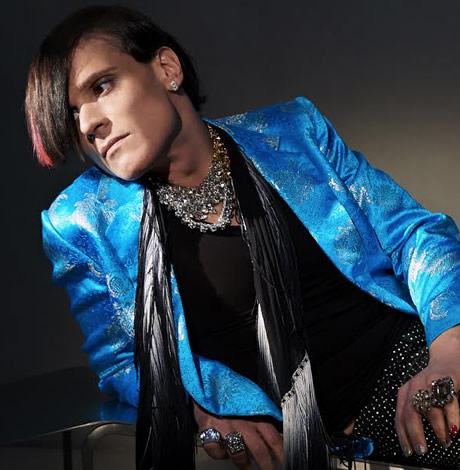
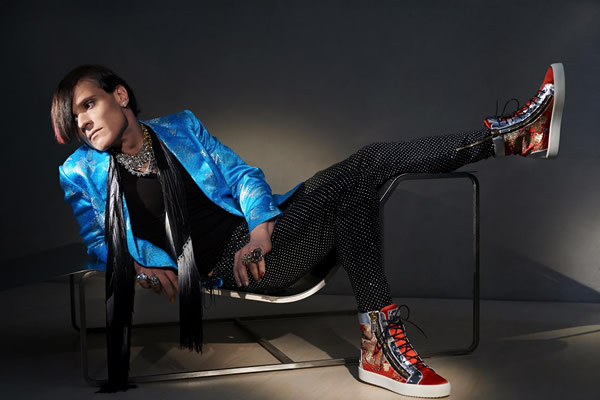
Cary NoKey’s act is ‘a little ‘Rock of Ages’ to ‘Cabaret’ to ‘42nd Street’ says visionary Rob Fusari. (Photo courtesy Project Publicity)
RuPaul’s Drag Race
Battle of the Seasons
2015 Condragulations Tour
with special guest Cary NoKey
March 8
815 V St., N.W.
$35-65 (VIP)
8 p.m.
It’s almost a show business cliché that often what looks like the best of times in a career from the outside can be some of the darkest times for the entertainer.
That was the case with Rob Fusari, the New Jersey native who found himself one of the most sought-after R&B/pop producers around the turn of the century. His credits are impressive — “No No No” and “Bootylicious” for Destiny’s Child, “Wild Wild West” for Will Smith as well as co-writer and producer for five cuts on Lady Gaga’s smash debut “The Fame” album from 2008, which he co-executive produced.
Yet oddly it took the 37-year-old turning within and discovering his drag alter ego Cary NoKey to find artistic satisfaction. He’ll be in Washington next week to open the “RuPaul’s Drag Race: Battle of the Seasons” tour and filled us in by phone from Cincinnati — where the tour happened to be at the time — on how it all unfolded. His comments have been slightly edited for length.
WASHINGTON BLADE: How did Cary NoKey emerge?
ROB FUSARI: It was about two years ago this month, actually, and it basically came out of a dark time creatively and emotionally after the Gaga record, “The Fame.” I felt I kind of peaked my career as a producer and had this pinnacle moment so in the years following, I was searching for what my next chapter would be, where I was supposed to be creatively and as a person. I thought the move was to try and find and develop another artist but I was finding it really difficult to identify who that person might be despite the thousands of artists I was looking at. It started to become very, very frustrating. … I just couldn’t seem to get that magic going with anyone. … I eventually recorded a vocal of my own one night in the studio on my birthday. I left early and went out for a few hours and when I got back, a group of friends were listening to it and … that’s kind of when Cary NoKey started. It was just one of those moments where it felt like everything I was searching for was right there in front of me somehow but I didn’t see it because I didn’t think of myself as a performer. It started unfolding and progressing in a very natural way.
BLADE: Had you always been interested in drag?
FUSARI: I grew up raised by a mom with very feminine qualities who kind of always treated me as the daughter she never had. Eventually I started to embrace that side of myself and it became almost like a car I could jump into and I just became OK with expressing my fashion sense and some other things I’d been suppressing and some things I was a little fearful of. It became this vehicle in which I found I could express myself in other ways.
BLADE: You said it was frustrating that you couldn’t find another great artist to work with but didn’t you realize a Gaga-caliber success story was maybe one in a million? How realistic was it to try to catch that kind of lightening in a bottle again?
FUSARI: No, because I’d spent a good 10 years in the business by that point and I had hundreds and hundreds of unsigned artists reaching out to me every day, so I had my pick of the litter so to speak. I said if I can’t find the next thing, nobody can. … I met some really strong ones, some really good artists but there’s something else a superstar has that nobody else has that you can’t explain it. This lightening bolt that goes through you that I just couldn’t find.
BLADE: You’ve produced A-list artists and now you’re performing yourself. What the public sees is much different, I’m sure, from what you see. What’s the biggest misconception?
FUSARI: The whole overnight sensation concept is so misleading because it’s an overnight sensation that takes years and years to get to. … I always say to artists, if you’re not willing to give up your life for this, it’s not gonna happen. There’s no in between. I don’t think people really understand the sacrifice, and it’s massive, that people make … The dingy clubs you have to play and having to be on all the time. People watch the Grammys and see the award and the parties and it’s like watching a movie. I’m here to tell you, it’s the opposite. Sure, there are those moments, of course, but what you have to give up and what you have to do to get there is everything.
BLADE: Your single is called “American Dream,” which is a rather serious song. Did you need Cary to tell that story or did she unlock some kind of artistic freedom in you?
FUSARI: Freedom comes in different ways. The freedom you get from your country comes at a very hefty price and I think we all know that, be it taxes, be it culture — it comes with a price. The freedom that drag queens and transgender people have is totally different. … They have a certain peace, a freedom and they’re living their dream that has nothing to do with what our country told us the dream was. It’s almost like we got fooled a bit with the white picket fence … which has really become the exception today. I’m not bashing the country, I love this country, but it’s built on some fallacies and weak ground that needs to be dealt with. … I felt I wasn’t living my own dream and who I am as Cary NoKey until I was able to let Rob Fusari and even Gaga go. I still get asked questions about it and that’s fine, but that chapter of my life has ended and thank God, because it wasn’t the best chapter to be honest. It might have been one of the worst.
BLADE: Where was the dissatisfaction coming from?
FUSARI: I’m not trying to bash Gaga, but sometimes the shit you have to eat to get to a certain place is not worth it. I can’t change history but I wonder now, was it worth it? It’s not about the money. I’d give the money back in a heartbeat. It’s about integrity, about character about feeling good about yourself and being part of something. The people who work with Cary NoKey, they’re going to stay on board because when the time comes and there’s success, they’ll have a reason to stay on board. You gotta treat people fairly. You gotta look to everyone who helped you along the way. I’m not going to just kick people off the roof.
BLADE: You felt Gaga did that?
FUSARI: Absolutely
BLADE: Was there any talk of working with her on her follow-up?
FUSARI: Absolutely not. I could never have done that anyway. I could never put my creative art and soul into somebody who kicks people off the roof.
BLADE: What would you say to her if you were with her in an elevator today?
FUSARI: Get off.
BLADE: You did a track with Whitney Houston. Did you work it up then send it to her people or were you in the studio together with her?
FUSARI: No, we cut the vocal together in the studio for “Love That Man.” (from the 2002 “Just Whitney” album)
BLADE: What was she like to work with?
FUSARI: To be honest, it wasn’t the best. She wasn’t sober so it was difficult at times. She was battling addiction and she was with Bobby, who was just a nightmare.
BLADE: How did it come about that you are on the “Drag Race” tour?
FUSARI: We were playing out in (New York) a lot and it ended up that we had landed the spot opening for Adore Delano at the Gramercy Theatre. We were thrilled. I love the Gramercy and Adore and we were just thrilled. It was a great fit. All the “Drag Race” folks were there and the executives and creative folks and they asked if we were interested in joining the tour next year, so we said yes. A lot of times things like this are said and it doesn’t come to fruition, it’s just part of the business, but we just finished the Macy Gray tour and right after that, we were ready and it just worked out.
BLADE: What are the queens like on tour?
FUSARI: It’s a blast, I’m so happy. They’re so nice and so classy. They’re pros. You’d think it would be a lot of backstage mayhem and chaos and drama on the bus and so on, but it’s actually really the opposite. Everybody’s really on their game and really pro. I’m really impressed.
BLADE: Do you feel like an outsider since they’re all vets of the show?
FUSARI: It’s weird, I don’t. They’ve accepted me and we definitely hit it off.
BLADE: Are you a gay man who does drag? How do you identify?
FUSARI: It goes so many different ways. It goes sideways, it goes inside out, it changes from day to day and I explore all different sides of it. That’s really the only way I can explain it. Do I want to go full drag tomorrow? Of course, I would do it. Do I want to have a sex change? No, it’s not something I’m looking to do. If somebody wanted to call me a cross dresser, I don’t think I am but you could probably say that about me and I don’t have a problem with it. … The wires just all cross for me in so many different directions.
BLADE: What do you actually do in the show?
FUSARI: It’s basically a way to open the show with something different. It’s more serious, though it can be playful at times. … We keep it simple. I do about a 20-minute set and sing about seven songs and I have a dancer with me. We do some covers but in a very Cary NoKey kind of way. … I do (Gaga hit) “Paparazzi” because it’s a song I wrote and I’m proud of but people get to hear it in more of its original version. Some of it’s very aggressive, almost like Kurt Cobain, but then it’s also kind of Joel Grey-“Cabaret” too. It spans a lot. … I know it’s hard to sit through 20 minutes of new music you don’t know, so we mix it up.
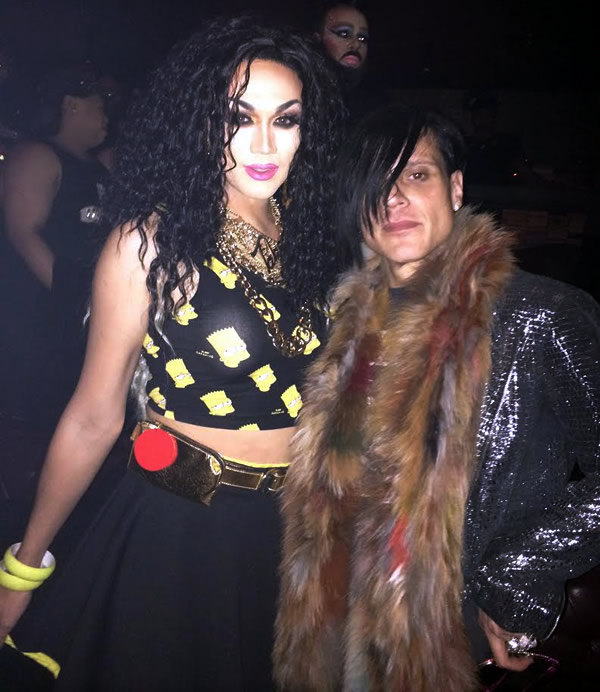
Rob Fusari says discovering his drag alter ego was his own kind of ‘American Dream.’ (Photo courtesy Project Publicity)
a&e features
Queer highlights of the 2026 Critics Choice Awards: Aunt Gladys, that ‘Heated Rivalry’ shoutout and more
Amy Madigan’s win in the supporting actress category puts her in serious contention to win the Oscar for ‘Weapons’
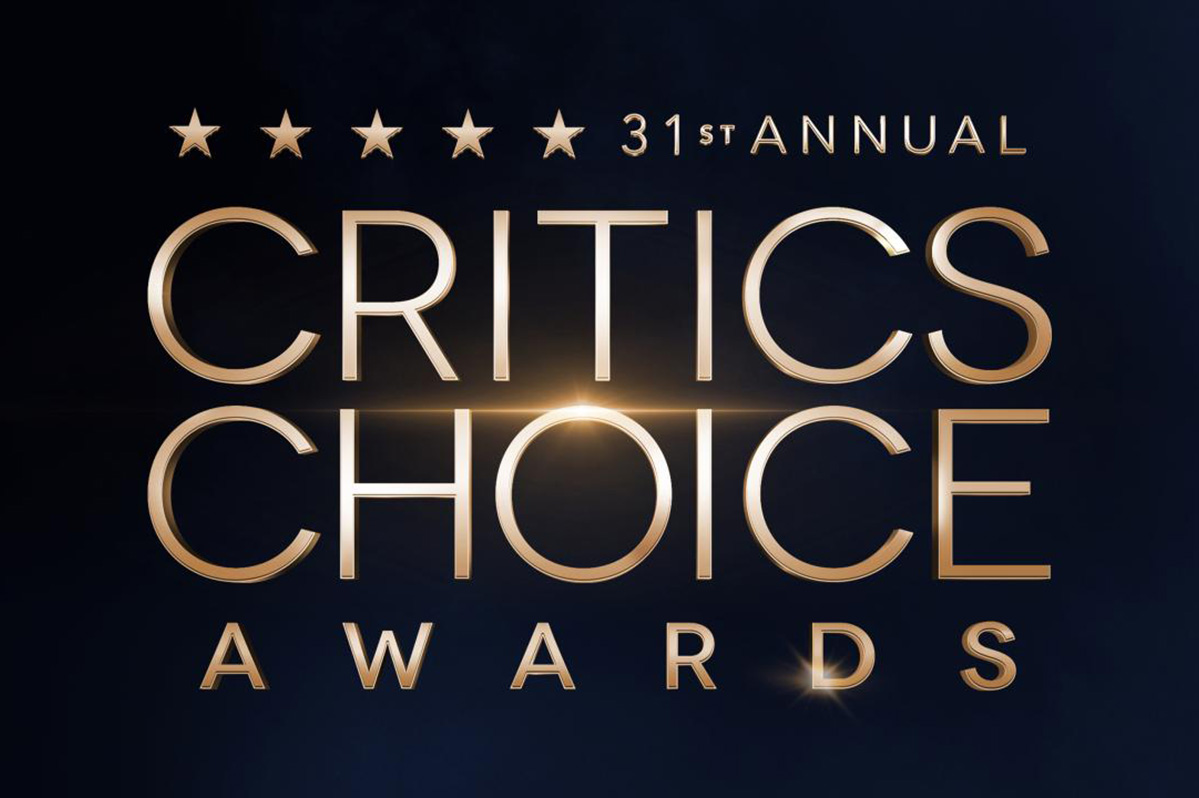
From Chelsea Handler shouting out Heated Rivalry in her opening monologue to Amy Madigan proving that horror performances can (and should) be taken seriously, the Critics Choice Awards provided plenty of iconic moments for queer movie fans to celebrate on the long road to Oscar night.
Handler kicked off the ceremony by recapping the biggest moments in pop culture last year, from Wicked: For Good to Sinners. She also made room to joke about the surprise hit TV sensation on everyone’s minds: “Shoutout to Heated Rivalry. Everyone loves it! Gay men love it, women love it, straight men who say they aren’t gay but work out at Equinox love it!”
The back-to-back wins for Jacob Elordi in Frankenstein and Amy Madigan in Weapons are notable, given the horror bias that awards voters typically have. Aunt Gladys instantly became a pop culture phenomenon within the LGBTQ+ community when Zach Cregger’s hit horror comedy released in August, but the thought that Madigan could be a serious awards contender for such a fun, out-there performance seemed improbable to most months ago. Now, considering the sheer amount of critics’ attention she’s received over the past month, there’s no denying she’s in the running for the Oscar.
“I really wasn’t expecting all of this because I thought people would like the movie, and I thought people would dig Gladys, but you love Gladys! I mean, it’s crazy,” Madigan said during her acceptance speech. “I get [sent] makeup tutorials and paintings. I even got one weird thing about how she’s a sex icon also, which I didn’t go too deep into that one.”
Over on the TV side, Rhea Seehorn won in the incredibly competitive best actress in a drama series category for her acclaimed performance as Carol in Pluribus, beating out the likes of Emmy winner Britt Lower for Severance, Carrie Coon for The White Lotus, and Bella Ramsey for The Last of Us. Pluribus, which was created by Breaking Bad’s showrunner Vince Gilligan, has been celebrated by audiences for its rich exploration of queer trauma and conversion therapy.
Jean Smart was Hack’s only win of the night, as Hannah Einbinder couldn’t repeat her Emmy victory in the supporting actress in a comedy series category against Janelle James, who nabbed a trophy for Abbott Elementary. Hacks lost the best comedy series award to The Studio, as it did at the Emmys in September. And in the limited series category, Erin Doherty repeated her Emmy success in supporting actress, joining in yet another Adolescence awards sweep.
As Oscar fans speculate on what these Critics Choice wins mean for future ceremonies, we have next week’s Golden Globes ceremony to look forward to on Jan. 11.
a&e features
Looking back at the 10 biggest A&E stories of 2025
‘Wicked,’ Lady Gaga’s new era, ‘Sexy’ Bailey and more
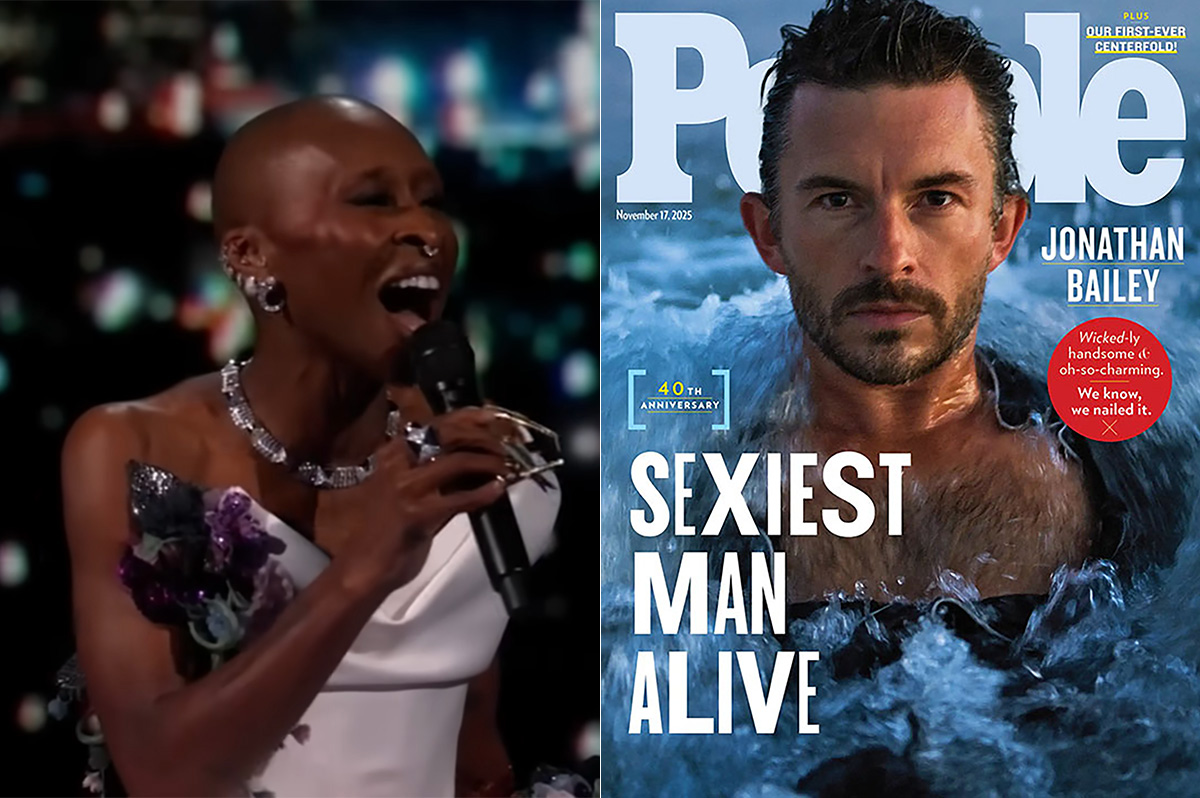
Although 2025 was a year marked by countless attacks on trans rights and political setbacks, the year also saw brilliant queer artists continuing to create art. From Cannes and Sundance Award winners now vying for Oscar consideration to pop icons entering new stages of their careers, queer people persevered to tell their stories through different media.
With the state of the world so uncertain, perhaps there’s no more vital time to celebrate our wins, as seen through some of this year’s top pop culture moments. While there’s no collection of 10 stories that fully encompass “the most important” news, here are some events that got the gays going:
10. ‘Mysterious Gaze of the Flamingo’ wins big at Cannes
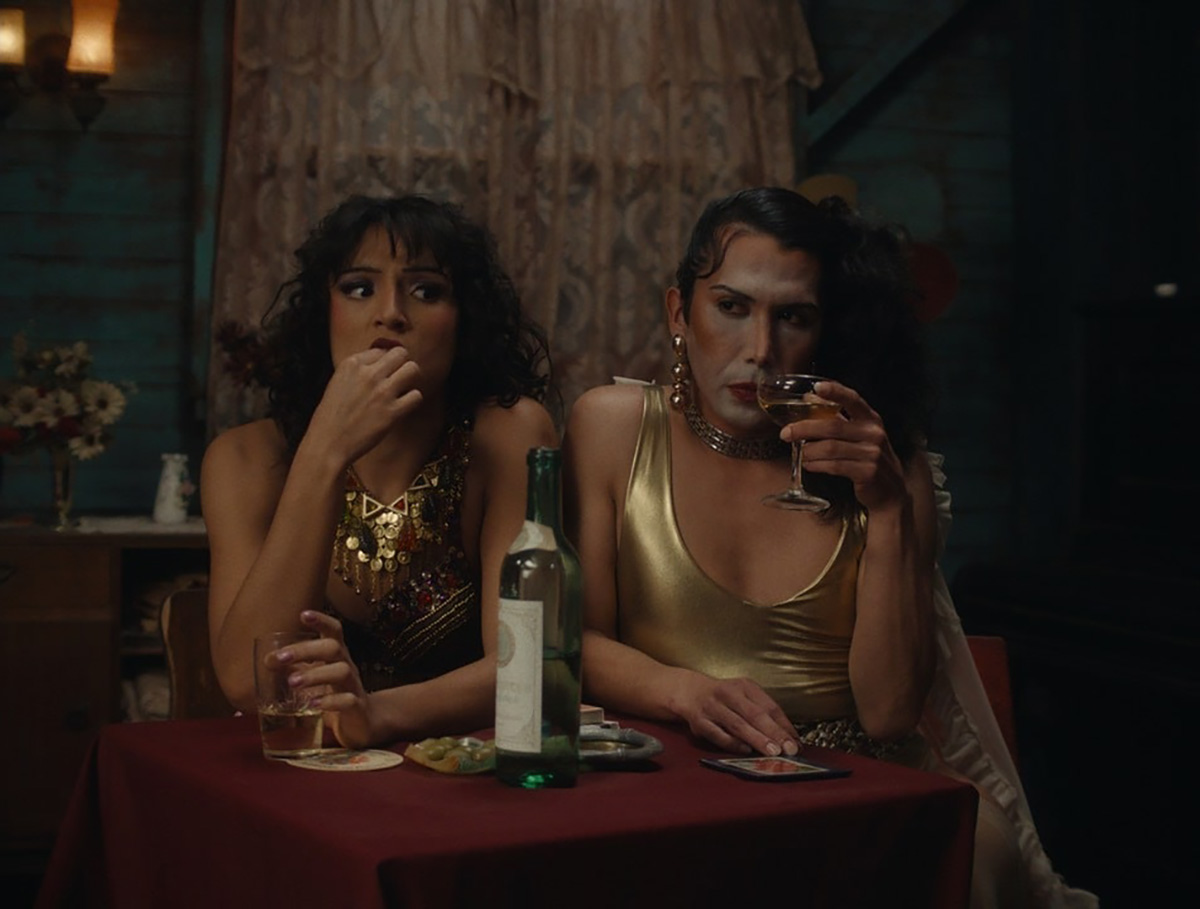
The Cannes Film Festival has become a crucial start for films hoping to make their way to the Oscars, and first-time director Diego Céspedes won the top Un Certain Regard prize for his intimate western “The Mysterious Gaze of the Flamingo.” The film is set in the ‘80s and is intended as an allegory for the AIDS epidemic. Seeing a film that unpacks vital queer history win one of the most coveted awards at Cannes has been a huge point of pride in the independent filmmaking community.
Since the film bowed at Cannes, it has been selected as Chile’s Oscar entry in the Best International Feature race. Speaking with The Blade during the film’s AFI Fest run in October, Céspedes said: At first, I was kind of scared to have this campaign position in the times that we’re living [in] here. But at the same time, I think the Oscars mean a huge platform — a huge platform for art and politics.”
9. ‘The Last of Us’ returns for an even gayer season 2
While the first season of The Last of Us gave us one of TV’s most heartbreaking queer love stories in the episode “Long, Long Time,” Season 2 doubled down on its commitment to queer storytelling with the blossoming relationship between Ellie (Bella Ramsey) and Dina (Isabela Merced). The show expanded on the pair’s relationship in the original video game, making it perhaps the central dynamic to the entire season. That unfortunately came with more homophobic backlash on the internet, but those who checked out all the episodes saw a tender relationship form amid the show’s post-apocalyptic, often violent backdrop. For their performance, Ramsey was once again nominated for an Emmy, but Merced deserved just as much awards attention.
8. ‘Emilia Pérez’ sparks controversy
Jacques Audiard’s genre-bending trans musical “Emilia Pérez” proved to be an awards season juggernaut this time last year, winning the Golden Globe for Best Musical/Comedy. But when the lead star Karla Sofia Gascón’s racist, sexist, and homophobic old tweets resurfaced, the film’s Oscar campaign became a tough sell, especially after Netflix had tried so hard to sell Emilia Pérez as the “progressive” film to vote for. Mind you, the film had already received significant backlash from LGBTQ+ audiences and the Mexican community for its stereotypical and reductive portrayals, but the Gascón controversy made what was originally just social media backlash impossible to ignore. The only person who seemed to come out of the whole debacle unscathed was Zoe Saldaña, who won the Oscar for Best Supporting Actress over Ariana Grande.
7. ‘Sorry, Baby’ establishes Eva Victor as major talent
Back in January at the Sundance Film Festival, Eva Victor (known by many for her brand of sketch comedy) premiered their directorial debut “Sorry, Baby” to rave reviews, even winning the Waldo Salt Screening Award. Victor shadowed Jane Schoenbrun on the set of “I Saw the TV Glow,” and seeing Victor come into their own and establish such a strong voice immediately made them one of independent cinema’s most exciting new voices. A memorable scene in the film sees the main character, Agnes (played by Victor), struggling to check a box for male or female, just one example of how naturally queerness is woven into the fabric of the story.
Most recently, Victor was nominated for a Golden Globe for her performance in the film, and she’s represented in a category alongside Jennifer Lawrence (“Die My Love”), Jessie Buckley (“Hamnet”), Julia Roberts (“After the Hunt”), Renate Reinsve (“Sentimental Value”) and Tessa Thompson (“Hedda”). The film also received four Independent Spirit Award nominations overall.
6. Paul Reubens comes out in posthumous doc
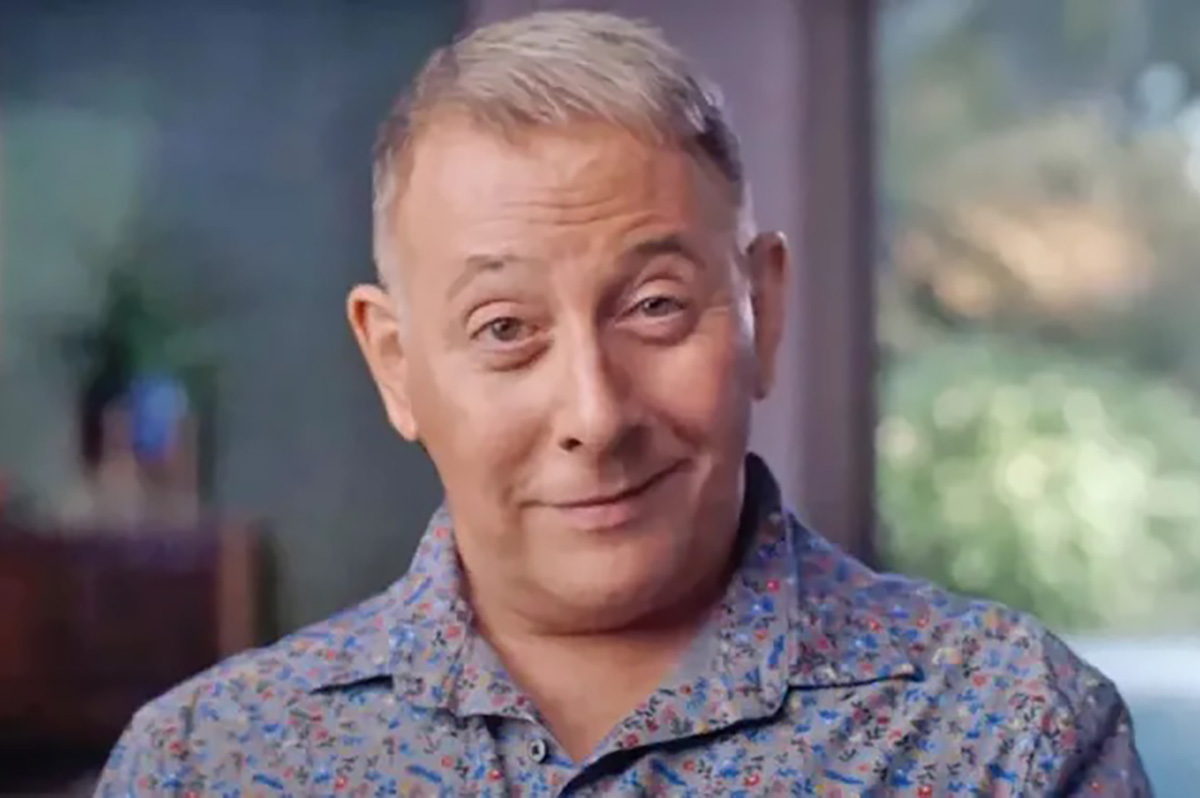
While Paul Reubens never publicly came out as gay before passing away in 2023, the two-part documentary “Pee-wee as Himself” premiered back in May on HBO Max, giving the legendary comedian a chance to posthumously open up to the world. Directed by Matt Wolf, the documentary explores how Reubens found his alter ego Pee-Wee Herman and why he kept his private life private.
The documentary won an Emmy in the Outstanding Documentary or Nonfiction Special category and remains one of the most critically acclaimed titles of the year with a 100% Rotten Tomatoes score. Also worth noting, the National Geographic documentary Sally told the posthumous coming out story of Sally Ride through the help of her long-time partner, Tam O’Shaughnessy.
5. Lady Gaga releases ‘Mayhem’
Lady Gaga entered a new phase of her musical career with the release of Mayhem, her seventh album to date. From the frenzy-inducing pop hit Abracadabra to the memorable Bruno Mars duet featured on “Die With a Smile,” seeing Gaga return to her roots and make an album for the most die-hard of fans was especially rewarding after the underwhelming film releases of “House of Gucci” and “Joker: Folie à Deux.” Gaga has been touring with The Mayhem Ball since July, her first arena tour since 2018. She even extended her tour into 2026 with more North American dates, so the party isn’t stopping anytime soon. And Gaga is even set to make an appearance next May in “The Devil Wears Prada 2.”
4. Cynthia Erivo, Ariana Grande perform at the Oscars
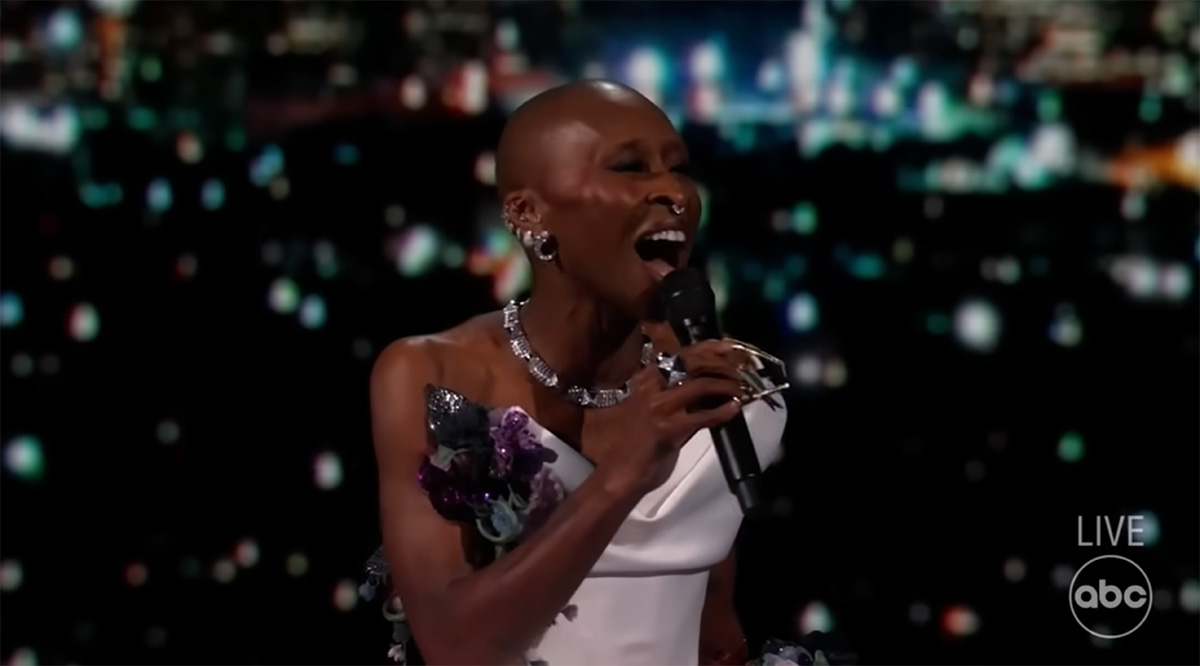
While “Wicked: For Good” didn’t quite reach the heights of the first film, we will forever have Cynthia Erivo and Ariana Grande’s breathtaking live performance that opened the 97th Academy Awards. The pair sang a rendition of “Over the Rainbow,” “Home,” and “Defying Gravity,” paying proper homage to the original 1939 “Wizard of Oz.” Even non-Wicked fans can’t deny how magical and brilliantly staged this performance was. With both Erivo and Grande up for acting Oscars last year, they’re hoping to repeat success and make history with consecutive nominations. Either way, let’s hope there’s another live performance in the making, especially with two new original songs (The Girl in the Bubble and No Place Like Home) in the mix.
3. Indya Moore speaks out against Ryan Murphy
Indya Moore has consistently used social media as a platform for activism, and in September, posted a 30-minute Instagram live speaking out against “Pose” co-creator Ryan Murphy. Moore claimed that Murphy wasn’t being a true activist for trans people. “Ryan Murphy, we need you to do more. You need to address the racism, the violence, and the targeting of people on your productions, Ryan Murphy. You do need to make sure trans people are paid equally. Yes, Janet did the right thing,” Moore said. Murphy was also back in the headlines this year for the critically panned “All’s Fair” and the controversial “Monster: The Ed Gein Story” starring Laurie Metcalf and Charlie Hunnam.
2. Cole Escola wins Tony for Best Leading Actor
Few pop culture moments this year brought us together more than Cole Escola winning a Tony award for “Oh, Mary!” the Broadway show they created, wrote and starred in (we love a triple threat!) Escola made history by becoming the first nonbinary person to win a Tony in the leading actor category, and seeing them excitedly rush to the stage wearing a Bernadette Peters-inspired gown instantly became a viral social media moment.
The cherry on top of Escola’s major moment is the recent news that they are writing a Miss Piggy movie with Jennifer Lawrence and Emma Stone producing — news that also broke the internet for the better. We cannot wait!
1. Jonathan Bailey makes gay history as ‘Sexiest Man Alive’
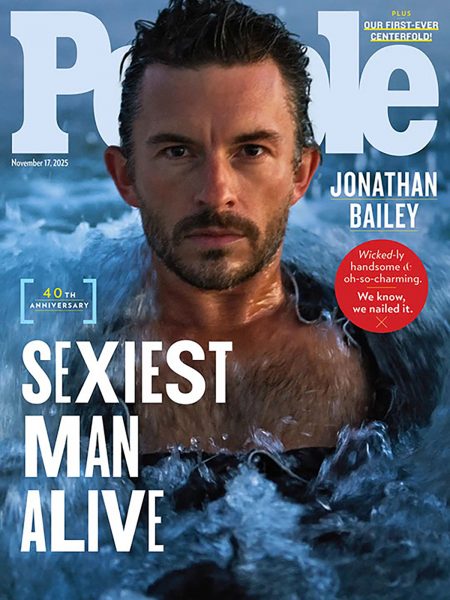
The same year as his on-screen roles in blockbusters “Jurassic World Rebirth” and “Wicked: For Good,” Jonathan Bailey made history as the first openly gay man to be named People magazine’s “Sexiest Man Alive.” The fact that it took 40 years for an openly gay man to earn the title is a signifier of how far we still have to go with queer representation, and seeing Bailey celebrated is just one small step in the right direction.
“There’s so many people that want to do brilliant stuff who feel like they can’t,” he told PEOPLE, “and I know the LGBT sector is under immense threat at the moment. So it’s been amazing to meet people who have the expertise and see potential that I could have only dreamed of.” In 2024, Bailey founded the charity titled The Shameless Fund, which raises money for LGBTQ+ organizations.
a&e features
Your guide to D.C.’s queer New Year’s Eve parties
Ring in 2026 with drag, leather, Champagne, and more
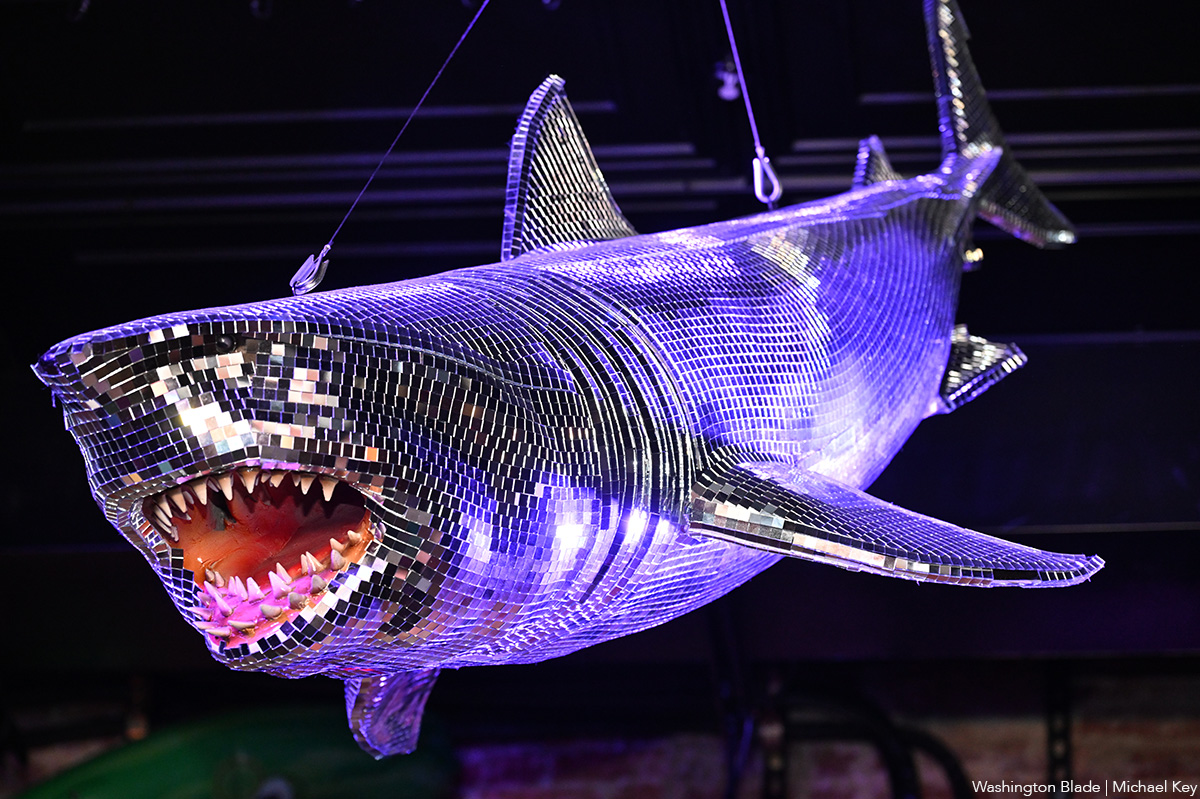
With Christmas in the rear view mirror, we can turn our attention to ringing in a much-anticipated New Year with a slew of local LGBTQ parties. Here’s what’s on tap.
Pitchers
This spacious Adams Morgan bar is hosting the “Pitchers’ Perfect New Year’s Eve.” There will be a midnight Champagne toast, the ball drop on the big screens, and no cover, all night long. The bar doesn’t close until 4 a.m., and the kitchen will be open late (though not until close). All five floors will be open for the party, and party favors are promised.
Trade
D.C.’s hottest bar/club combo is leaning into the Shark motif with its NYE party, “Feeding Frenzy.” The party is a “glitterati-infused Naughty-cal New Year’s Even in the Shark Tank, where the boats are churning and the sharks are circling.” Trade also boasts no cover charge, with doors opening at 5 p.m. and the aforementioned Shark Tank opening at 9 p.m.. Four DJs will be spread across the two spaces; midnight hostess is played by Vagenesis and the two sea sirens sensuously calling are Anathema and Justin Williams.
Number Nine
While Trade will have two DJs as part of one party, Number Nine will host two separate parties, one on each floor. The first floor is classic Number Nine, a more casual-style event with the countdown on TVs and a Champagne midnight toast. There will be no cover and doors open at 5 p.m. Upstairs will be hosted by Capital Sapphics for its second annual NYE gathering. Tickets (about $50) include a midnight Champagne toast, curated drink menu, sapphic DJ set by Rijak, and tarot readings by Yooji.
Crush
Crush will kick off NYE with a free drag bingo at 8 p.m. for the early birds. Post-bingo, there will be a cover for the rest of the evening, featuring two DJs. The cover ($20 limited pre-sale that includes line skip until 11 p.m.; $25 at the door after 9 p.m.) includes one free N/A or Crush, a Champagne toast, and party favors (“the legal kind”). More details on Eventbrite.
Bunker
This subterranean lair is hosting a NYE party entitled “Frosted & Fur: Aspen After Dark New Year’s Eve Celebration.” Arriety from Rupaul Season 15 is set to host, with International DJ Alex Lo. Doors open at 9 p.m. and close at 3 p.m.; there is a midnight Champagne toast. Cover is $25, plus an optional $99 all-you-can-drink package.
District Eagle
This leather-focused bar is hosting “Bulge” for its NYE party. Each District Eagle floor will have its own music and vibe. Doors run from 7 p.m.-3 a.m. and cover is $15. There will be a Champagne toast at midnight, as well as drink specials during the event.
Kiki, Shakiki
Kiki and its new sister bar program Shakiki (in the old Shakers space) will have the same type of party on New Year’s Eve. Both bars open their doors at 5 p.m. and stay open until closing time. Both will offer a Champagne toast at midnight. At Kiki, DJ Vodkatrina will play; at Shakiki, it’ll be DJ Alex Love. Kiki keeps the party going on New Year’s Day, opening at 2 p.m., to celebrate Kiki’s fourth anniversary. There will be a drag show at 6 p.m. and an early 2000s dance party 4-8 p.m.
Spark
This bar and its new menu of alcoholic and twin N/A drinks will host a NYE party with music by DJ Emerald Fox. Given this menu, there will be a complimentary toast at midnight, guests can choose either sparkling wine with or without alcohol. No cover, but Spark is also offering optional wristbands at the door for $35 open bar 11 p.m.-1 a.m. (mid-shelf liquor & all NA drinks).
-

 National5 days ago
National5 days agoWhat to watch for in 2026: midterms, Supreme Court, and more
-

 District of Columbia5 days ago
District of Columbia5 days agoImperial Court of Washington drag group has ‘dissolved’
-

 Colombia4 days ago
Colombia4 days agoGay Venezuelan man who fled to Colombia uncertain about homeland’s future
-

 Arts & Entertainment4 days ago
Arts & Entertainment4 days ago2026 Most Eligible LGBTQ Singles nominations

